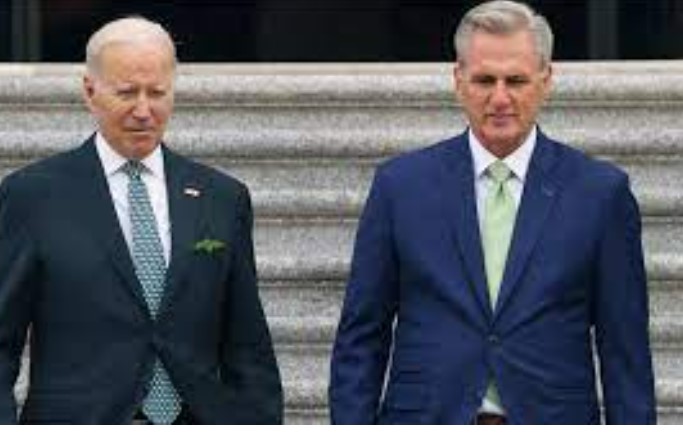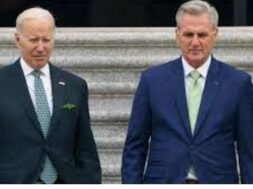
Roving Periscope: The US Senate raises the limit to avert a first-ever default
Virendra Pandit
New Delhi: On Thursday, the US Congress took final steps to avert the nation’s first-ever default.
And world economies heaved a sigh of relief when, fending off a US default, the Senate finally approved with a vote of 63-36 a debt-ceiling and budget cuts package, sealed the bipartisan deal, and sent it to President Joe Biden’s office to make it law before the fast-approaching deadline of June 5.
The compromise package on the Fiscal Responsibility Bill, negotiated between President Biden and House Speaker Kevin McCarthy, and already passed by the House of Representatives on Wednesday, left neither Republicans nor Democrats fully happy with the outcome.
But the result, after weeks of hard-fought budget negotiations, shelved the volatile debt ceiling issue that risked upending the US and global economy until 2025 after the next presidential election due in 2024.
This Senate approval on a bipartisan vote reflected the overwhelming House tally (314-117) the day before, relying on centrists in both parties to pull the Biden-McCarthy package to passage.
Senate Majority Leader Chuck Schumer said America can breathe a sigh of relief.
The bipartisan negotiations were fast-forwarded as the Treasury was worried the US might run short of cash after June 5 to pay its bills and risk a devastating default severely affecting world economies.
Raising the nation’s debt limit, now USD 31.4 trillion, would ensure Treasury could borrow more to pay already incurred US debts.
The showdown on the debt ceiling was a familiar high-stakes battle in the US Congress, a fight taken on by McCarthy and powered by a hard-right House Republican majority confronting the Democratic President with a new era of divided government in Washington, the media said.
Refusing a once routine vote to allow the nation’s debt limit to be lifted without concessions, Speaker McCarthy brought the White House to the negotiating table to strike an agreement that forces spending cutbacks aimed at curbing the nation’s deficits.
The 99-page bill restricts spending for the next two years, suspends the debt ceiling into January 2025, and changes some policies, including imposing new work requirements for older Americans receiving food aid and greenlighting an Appalachian natural gas line that many Democrats oppose.
It also bolsters funds for defense and veterans, cuts back new money for Internal Revenue Service (IRS) agents, and rejects President Biden’s call to roll back the Trump-era tax breaks on corporations and the wealthy to help cover the nation’s deficits.
The bill imposes automatic 1 percent cuts if Congress fails to approve its annual spending bills.
Senator Lindsey Graham of South Carolina complained that military spending, although hiked in the deal, was not enough to keep pace with inflation, particularly as supplemental spending will be needed to support Ukraine against the war waged by Russian President Vladimir Putin.
Tensions ran high in the House the night before as hard-right Republicans refused the deal. The conservatives even warned of possibly trying to oust McCarthy over the issue.
But Biden and McCarthy assembled a bipartisan coalition, with Democrats ensuring passage on a robust 314-117 vote. In all, 71 House Republicans broke with McCarthy to reject the deal.
The nonpartisan Congressional Budget Office (CBO) said the spending restrictions in the package would reduce deficits by USD 1.5 trillion over the decade, a top goal for the Republicans trying to curb the debt load.













